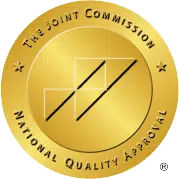Advocating for Yourself in Addiction Recovery

When addiction becomes a part of your life, it takes away a lot from you. It affects your health, strains your relationships, controls your finances, and hampers your performance at work or school. You lose your ability and confidence to self-advocate, which can make you feel utterly powerless.
Recovery is the process through which you reclaim your life. Although many people follow similar treatment methods for addiction, no two individuals experience recovery in the same way. Your treatment team can customize your rehab program to suit your unique needs. Communicating your needs effectively is essential to make the most of your treatment program. Developing self-advocacy skills can empower you to acknowledge your struggle with addiction and address concerns in your recovery.
What Does It Mean to Be a Self-Advocate?
Being a self-advocate involves believing in yourself and using that belief to advocate for what you believe is in your best interest for your mental, physical, and spiritual well-being. Even during a challenging period, reaching out for help is a form of self-advocacy.
It can be tough to have faith in yourself when facing addiction. But remember, the moment you sought help, you took one of the most challenging steps towards recovery. Your strength and determination in taking that first step are accomplishments to be proud of. Let this success drive you towards the next steps in your journey, building your self-belief.
Being aware of your needs and feeling comfortable expressing them to others is crucial for those guiding you on your path to recovery. You can advocate for yourself by:
- Setting personal goals and working towards positive change.
- Staying informed, educated, and aware of your rights and available resources.
- Making informed decisions about your treatment.
- Clearly articulating your needs.
- Sharing what is or isn’t working for you in your recovery.
- Speaking up if someone needs to be more supportive.
- Standing up for yourself if you’re treated unfairly.
Why is Self-Advocacy So Important in Recovery?
Learning to advocate for yourself is an essential part of recovery and a valuable skill to carry into the world beyond treatment. Along your path to recovery, you’ll interact with various healthcare professionals, administrators, recovery mentors, peers, staff, and others, all of whom want to support you. While familiar with treatment plans, they may need help understanding your needs or desires. Your recovery should be your top priority; to get the most out of it, you must communicate what you need and when you need it.
Eight Ways to Be a Self-Advocate During Your Recovery
It may feel uncomfortable speaking up for yourself at first. Addiction takes away your self-confidence and makes you feel weak. Beginning treatment should be a time of hope, but if you’ve battled with addiction, you know that it also steals your hope. Speaking up for yourself in treatment gives you more control over your treatment experience. It helps you regain the confidence you need to regain control of your life.
- Understand yourself: Recognize your strengths and weaknesses and consider how they may impact your recovery.
- Believe in yourself: Boost your self-esteem by recalling past achievements and reminding yourself that you’ve overcome challenges.
- Set your own goals: While receiving guidance on recovery goals, envision your outcomes and the steps needed to achieve them. This personal touch can make your journey feel more meaningful.
- Educate yourself: Use available resources to learn about addiction, treatment options, medications, and services. Don’t hesitate to ask questions about your care and treatment plan.
- Build relationships: You don’t have to go through recovery alone. Reach out to supportive friends and family, actively participate in appointments, groups, and meetings, and forge relationships that will continue to support your recovery.
- Seek help from loved ones: While self-advocacy is crucial, having an advocate from outside, like a close friend or family member, can provide a fresh perspective and boost your confidence. It can also make it easier to discuss your concerns with your healthcare team.
- Speak up if something isn’t working: Recovery is a unique journey for everyone, and various treatment techniques are used. Discuss your concerns with your recovery team if something doesn’t feel right for you. They can adjust your care to better suit your needs.
- Stay calm: If you’re upset or uncomfortable with your care, it’s understandable, but remember that your care team ultimately wants the best for you. Express your concerns calmly, stating them clearly and offering solutions. An angry confrontation may yield a different response. Still, a calm discussion can help you and your team find solutions together.
Remember, the road to recovery can be challenging, but the sober life it leads to is worth all the hard work. The more you practice self-advocacy, the stronger you’ll become. That strength will carry you through the toughest parts of your journey to recovery.
We're here when you are ready to take your first steps toward recovery.
Recovery Advisors are available to take your call 24/7, even during the holiday season.
Call Today







